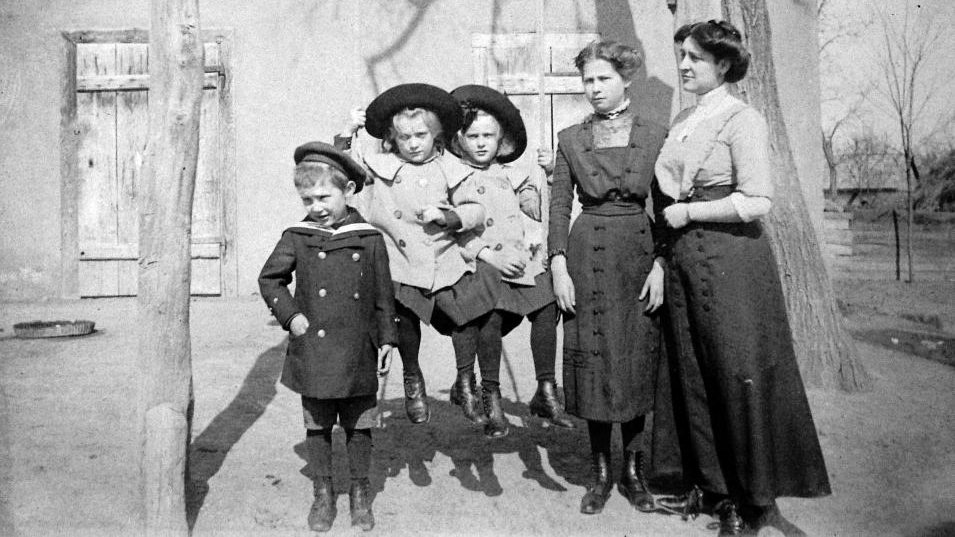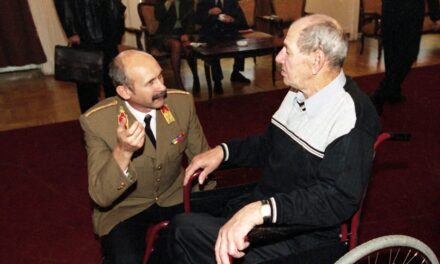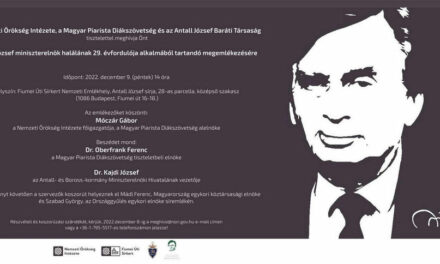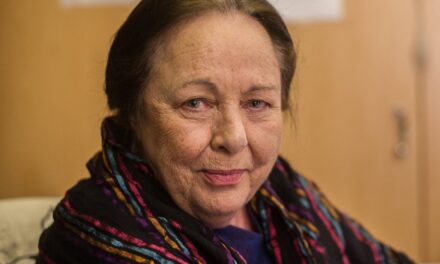The number of births decreased dramatically in Hungary after the First World War, and in some regions single-handedness became fashionable: the abortion debate of the time flared up in our country just a hundred years ago.
A heated debate raged about insemination in Hungary exactly one hundred years ago. The self-declared counter-revolutionary system
identified the so-called one-handed practice as a serious danger,
which was typical mainly in the counties of Somogy, Tolna and Baranya, and which meant family planning with the use of condoms or abortion, aiming for a single son.
The value of the only male offspring was the non-distribution of inherited family wealth. Parish priest Ignác Aradi of Polgárd said that the one-handedness "infected the thinking of the village population", the "fashionable, wealthy farmers . . . they abhor the idea that after their death the wealth would be divided into several parts in the hands of the children, and therefore, in order to keep the wealth in one hand, they make sure that no more than one male child can be born".
The price of an illegal abortion - probably depending on the progress of the pregnancy - ranged between two and ten thousand kroner in 1921, although the Hungarian Public Administration indicated at the end of 1920 that in the countryside they also resorted to "curds" and "forbidden drugs" for the "horrible murder of life".
As a result of the First World War, the number of births in Hungary fell drastically.
While the population of the area after Trianon was 209,000 in 1914, it was minus 221,000 in 1918. According to 1921 data, the population of the counties affected by one-handedness almost doubled due to the return of soldiers, the wave of marriages following the war and the need to replace those who died at the front, but there was cause for concern in the light of the numbers.
Ministerial adviser Alajos Kovács explained in his presentation in 1920 that in 20-25 years - when "those hundreds of thousands of children who were not even born during the war should reach reproductive age" - a "catastrophic" "decline" will follow we have to follow in order to ensure normal population growth at least until then", and in this he identified the one-handedness as the main opponent.
As a solution, he came to the conclusion that "social movements must constantly keep this issue on the surface, and the state must include the idea of race protection and race preservation in all its measures, on the one hand with favors and awards, on the other with background suppression and punishments." He also prioritized the involvement of pastors in the anti-abortion campaign. Kovács put the number of Hungarian children who are not born due to singletons to 95,000 per year. (When I wrote my lines, there were about 30,000 abortions per year in Hungary, the peak was under socialism with nearly 200,000).
The whipping of rural Hungarians did not stop in connection with the one.
According to the Néptanítók newspaper, the village is characterized by the same "skewed moral habits", "the usual immorality of sexual life", the report of an agricultural inspector in Heves, according to which "there are a remarkable number of stupid and deformed people" in his district, sheds light on the probability of reproduction within the family.
In his travelogue, István Milotay wrote about peasant women who take away their fetuses for financial gain, "about infertility, loneliness, the reckoning of cruel and empty, wooden and dark hearts that tremble for a moon and a door", and about a farmer who told him that "a daughter of mine there is, but believe me, I'm already regretting it".
According to small farmer politician Emil Kovács, women in Angyalföld are "grieving for infertility", and Ferenc Erdei wrote about how "lighter-minded" peasant women mercilessly "let sick children perish". Ethnographer Lajos Kiss made mention of the rural practice of throwing unwanted children into a pit The Life of Poor People . Moreover, the rate of child abductions was highest in the most Catholic counties.
The individual question also attracted the personal attention of Miklós Horthy.
In the late summer of 1920, the governor spoke about how although "a part of our people were supporters of the single system", now "we need healthy generations because we are few".
The Village Association, which was founded in May 1920, was founded in May 1920 and was chaired by Horthy himself and headed by Gyula Rubinek - the Minister of Agriculture of the first Teleki government. At the 1923 lecture of the Village Association, the university medical teacher József Lovrich said that "the clinics are full of women" who want the "forbidden surgery" and that "abortion" is still the "race-Hungarian regions". . . a disease that "causes" its withdrawal.
At the same time, the Reformed pastor Sándor Széles explained that childbearing and birth control are the "dark sin" and "destroying fashion" of Hungarian bedrooms. And according to Lászlóné Zemplényi, the columnist of Uj Barázda, "one-person or one-person families are increasing alarmingly".
In the light of the rhetoric, it is surprising that the only counter-revolutionary government measure related to abortion was the judicial decree of 1921, which raised the wages of prison doctors in the case of performed abortions. Although the government appointed József Birtha, a refugee reformed pastor from Léva who had previously published several works against singletons, as a government commissioner for child protection in the summer of 1921, the teacher Zsigmond Thúry from Kiskunhalas already wanted to see a separate government commissioner for singletons in an article. However, this never happened.
Revision efforts also appeared behind the demand to increase the population.
Sándor Széles Horthy, visiting the newly-reclaimed Pécs, was warned by the Reformed priest Sándor Széles that if the two villages in Baranya were not liquidated, the Serbs could evict the Hungarians.
A typical story: in the summer of 1921, gendarmes took away the district doctor of Polgárdi in Fejérmegy, Nátán Somogyi, who, with the help of his assistant, performed hundreds of illegal abortions in the settlement. As the shocked right-wing Új Nemzedék noted, the husbands "knew in all cases about the relationship between their wives and the doctor" - that is, about performing abortions - and when Somogyi was arrested, "the citizens wanted to free the doctor", the masses finally had to "forcefully" dissolve.
The government needed rural Hungarians, and rural Hungarians needed the "freedom of family planning".
True, other doctors rather shared the opinion of the course. In April 1921, Ottokár Prohászka shared the following story in his diary without any kind of comment: "The former count doctor of Székesfehérvárcsurgó persecuted the two, and his memory lives on in the village. They once called a woman who was taking her child away, who was covered in blood. He stopped at the threshold and shouted: "Kill me, you who have done this with the gift of God!" He did not go in; by the time the doctor was called from Csákberény, the woman had died".
The conservative-liberal newspaper editor Jenő Rákosi, who wrote under the pseudonym "Dunántúli" in his own paper, had a similarly harsh opinion that "the village [where one-handedness is prevalent] must be stigmatized, it must be separated from the rest of the world - as an epidemic place. They should not be allowed to go to the fair, they should not be allowed into the city. They should be proclaimed throughout the country as lepers, to whom it is not permissible to marry daughters from elsewhere, only that their daughters may marry elsewhere if they have repented and, if necessary, they should be put under a church interdict. The fire of Sodom and Gomorrah and no willow is enough for him, and it is the duty of the national government to release this fire upon him".
Perhaps it is typical that he did not take his opinion by name.
Bernát László Veszprémy / Mandiner
Photo: Fortepan












